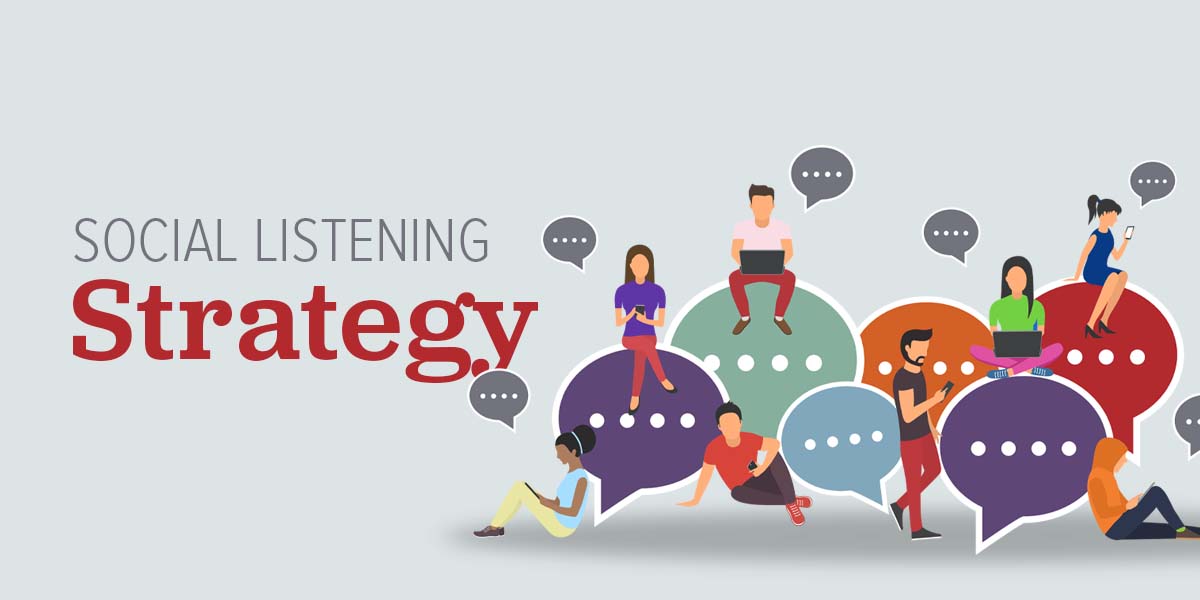Developing a Social Listening Strategy For Your Nonprofit
Lisa Hirst Carnes | December 2022

Social media is a powerful tool for nonprofit organizations. A strong social presence can increase awareness, improve community engagement, and more. But, you need a well-planned strategy to get the most out of your social media efforts. One way to boost your results is to invest time in social listening. Let’s look at what social listening is, why it’s so important, and how it can help nonprofits grow and flourish.
What is Social Listening?
Social media can be a vast sea of information and noise. Social listening is the practice of paying attention to relevant brand topics. This may include direct mentions, discussions involving competitors, or relevant news.
Social Listening vs Social Monitoring
Often, social listening and social monitoring are considered interchangeable. But, there are differences. Social monitoring is part of social listening, but it has a narrower focus. In practicing social monitoring, you may track a specific campaign, account, or keyword. Social listening is broader in scope and refers to tracking everything relevant to your brand.
The Benefits of Social Listening
There are several benefits a nonprofit can reap with social listening.
Helps With Market Research
Social listening is a great way to conduct market research in real-time. Comments and posts on Facebook, Twitter, Instagram, or TikTok provide insight into people’s opinions and preferences. Customers often reveal pain points that can be valuable for tweaking your strategy.
Improves Customer Support
One critical facet of social listening is paying attention to your audience. A nonprofit, for example, may receive questions on a Facebook page from members or donors. A thoughtful response could be the difference between acquiring a new donor or that person losing interest. That’s why it’s essential to watch social media pages and respond to queries and comments.
Lets You Identify Brand Advocates to Partner With
Nonprofits can benefit by finding advocates who are a good match for their message. Search for relevant accounts, whether on Instagram, YouTube, Facebook, Twitter, or TikTok. Influencers may already be talking about your organization or discussing relevant issues. Social media can be a fruitful environment for finding potential campaign partners.
Useful For Public Relations
People today often use social media to express their opinions. Social listening allows you to track important conversations and, when appropriate, participate. This can help generate attention for the work you do as well as prevent potential crises.
Helps You Build a Community
Social listening can be the difference between merely posting content and building an engaged community. It helps you publish content your audience is interested in. Following discussions allows you to tap into what is popular and what people want to talk about. Of course, brands need to engage with their audience if they want to build community.
Social Listening: How to Get Started
Before you implement a social listening strategy, you need to consider several factors.
Identify Your Goals
What do you most want to achieve with social listening? Whether to increase membership, donations, or engagement, your objectives tell you which metrics are most important.
Use the Appropriate Channels
Social media is a broad field. If you try to engage on every platform, it will be hard to focus your efforts. Determine which sites are most suitable for your needs. For example, if you’re targeting a younger audience, consider Instagram, Snapchat and TikTok. Older users are more likely to use Facebook. You can test different platforms and find out which brings you the best results.
Work Within Your Budget
Identify your budget for social listening. You may need to invest in employees or contractors to manage social media accounts, analytics and automation tools, advertising, and more.
Make Sure Your Tools Have Essential Integrations
Social listening tools may integrate with social media sites, advertising platforms, email services, Google Analytics, content management systems, and others. Determine which integrations are essential for your campaigns.
Know Your Audience
It’s critical to know who you are targeting, as this may vary from one campaign to another. Creating key personas will help plan effective campaigns. You may change your approach depending on your audience. Beside the demographics, learn what matters to your audience to inform your strategy. What issues are they passionate about? What types of content are they most likely to respond to?
Dealing With a Crisis
No matter how good your intentions are, you may offend people with something you say or do. Social listening allows you to catch issues before they balloon into full-scale disasters. If someone posts something offensive, you can remove it before it causes a reaction. On many platforms, reactions are almost instantaneous. So, it’s important to track these accounts in real-time.
Find the Right Social Listening Tools
-
Google Trends reveals what people are searching for
-
Set Google Alerts for your brand, competitors, and any relevant search terms
-
Boolean search is also helpful. It uses terms such as AND, OR, or NOT to get more specific results
Get The Most Out of Social Listening
-
Listen to your audience. Listen and then take appropriate action based on what you learn.
-
Read the Room! If your followers criticize something you’ve said or done, pay attention. You can’t succeed by going against your audience.
-
Be authentic and honest.
-
Always take the high road. If someone attacks you on social media or in a review, respond and try to resolve the matter. Don’t let your emotions control you and never get into public arguments.
-
Have a flexible social listening strategy. Be open to change as your needs and that of your audience change over time.
Contact us today, if you need help planning your social media strategy.

